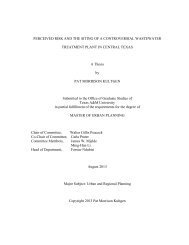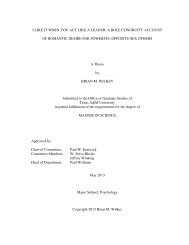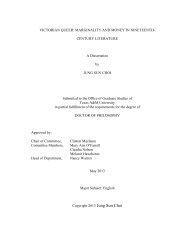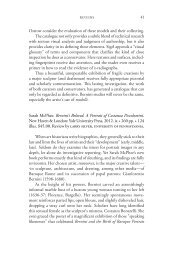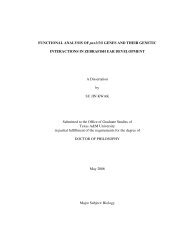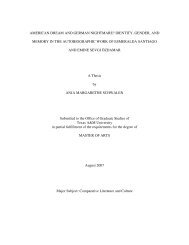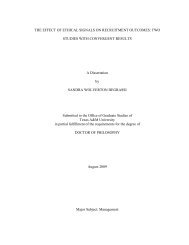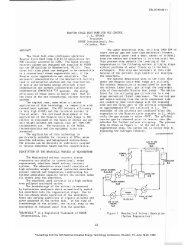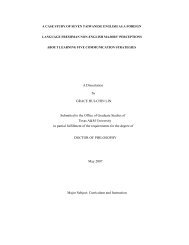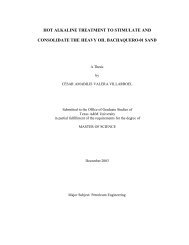INVESTIGATIONS INTO HYPERLIPIDEMIA AND ITS POSSIBLE ...
INVESTIGATIONS INTO HYPERLIPIDEMIA AND ITS POSSIBLE ...
INVESTIGATIONS INTO HYPERLIPIDEMIA AND ITS POSSIBLE ...
You also want an ePaper? Increase the reach of your titles
YUMPU automatically turns print PDFs into web optimized ePapers that Google loves.
47<br />
nutrient delivery (which also mainly is related to dogs with acute pancreatitis), and the<br />
type of diet administered, which might be important in dogs with both acute and chronic<br />
pancreatitis. Although the diet of choice for the management of dogs with pancreatitis<br />
has not been systematically studied to date, based on anecdotal experience, a balanced<br />
ultra-low-fat diet is currently the preferred choice for dogs. This is mainly based on<br />
studies that suggest that high-fat diets (typically table scraps) might be related to the<br />
development of pancreatitis in some dogs. 252 This is further supported by studies that<br />
implicate hypertriglyceridemia in the development of pancreatitis in humans and<br />
experimental models. 252 However, no studies have evaluated whether the fat content of<br />
commercially available canine diets is important in treating or preventing acute and<br />
chronic pancreatitis. While several supportive measures are important in the<br />
management of acute pancreatitis, nutritional management might be the only measure<br />
for the long-term management of dogs with chronic pancreatitis.<br />
The association between hyperlipidemia and pancreatitis<br />
An association between hyperlipidemia and pancreatitis was first noted in<br />
humans by Speck in 1865. 253 Several clinical and experimental studies in humans and<br />
animals, respectively, have been conducted since then, and today, severe<br />
hypertriglyceridemia is a well recognized risk factor for pancreatitis in humans. 254-257<br />
Hypertriglyceridemia is believed to be the 3rd most common cause of pancreatitis in<br />
humans, after alcohol- and gallstone-induced pancreatitis, accounting for up to 10% of<br />
cases. 258<br />
However, within specific groups, the prevalence of hypertriglyceridemia-



